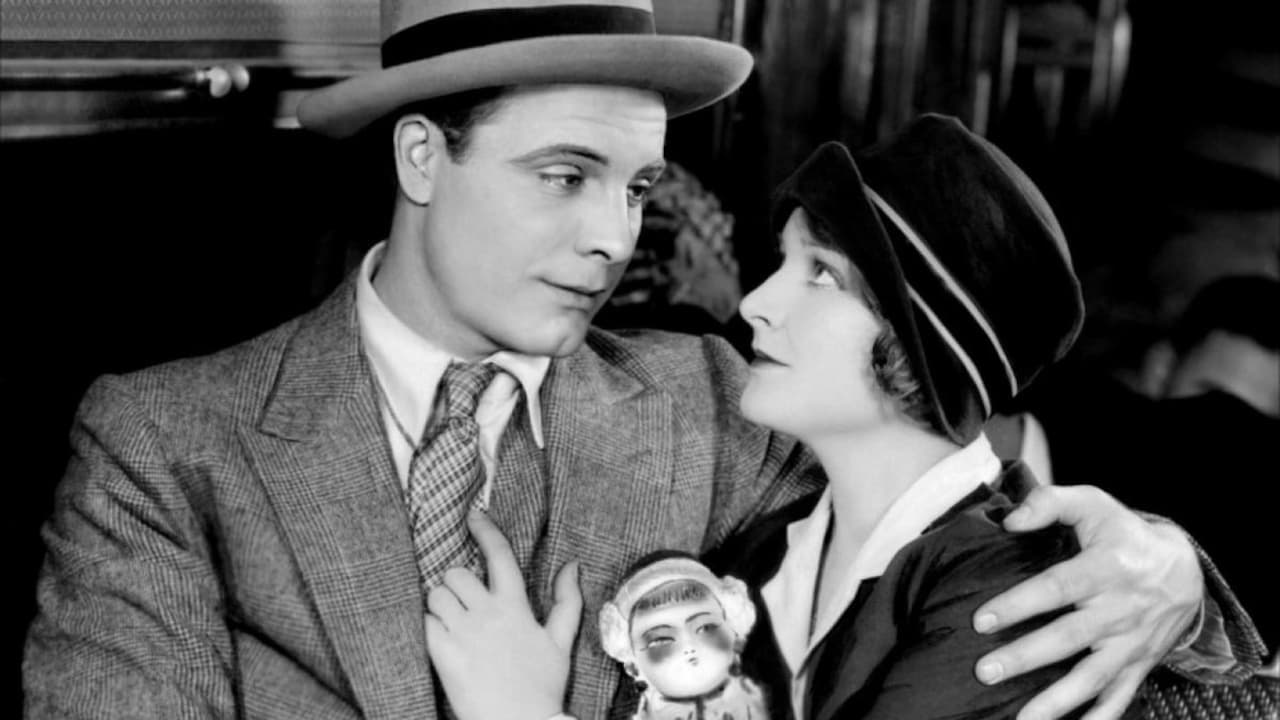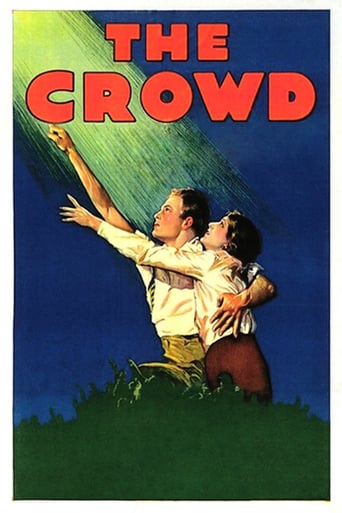



Wonderful character development!
Gripping story with well-crafted characters
It's fun, it's light, [but] it has a hard time when its tries to get heavy.
View MoreThis is a coming of age storyline that you've seen in one form or another for decades. It takes a truly unique voice to make yet another one worth watching.
View MoreA very surprisingly mature treatment of a subject at that age, when not many have really attempted such maturity, at least in Hollywood (there were of course Euro movies, delving in different serious aspects). In Hollywood, even when some attempts were made, the main focus was lost, trying to cater the masses (e.g. Way Down East). But this movie doesn't lose the focus, till the end. The subject here is the treatment of Human Ego. Every person deep inside, considers himself/ herself to be special, and hence not really a part of the mass, but one who destined to rise to the cream. Many times, this belief is strengthened by their parents/ other really caring persons, which might have a disastrous effect, when the speciality of the person isn't too far away from the statistical 'Average' The movie chronicles of one of such person, who could luckily get a girl, Mary, who wasn't average in real sense, but she wasn't something of fantasy either, these loving and motherly women, ready to forgive the husbands errant ways, not due to belief, but only for love/ care (he would be lost without me - indicates both the aspects). The ending might be confusing, it has confused a few of the reviewers too, but it isn't depressing or even confusing. It is the acceptance of the facts, that We are after all a part of the crowd. Still we have our specialities (Juggling, Advertisement catch-words), through we can stand a bit away from it. But for that we have to accept that we are not so different from the mass, that we can make our own path, and then make the stream follow us. In fact on this aspect, the movie not only ends in a happy, but in a positive note too. There are a few points - which might have been missed, the transformation of the hero, from one living in his fools paradise, to real life, comes when his son, (the second one with unconditional love, along with Mary, his wife), and the only one still with full faith on him, declares "When I grow Up, I want to be like you" , and then he has to prove himself to be worth of that faith, even if it meant starting from the bottom. He had his talents, and that gets him start. The second was the support of his wife, who proudly shows the neighbour in the theater, her husband's creation, and the man seems to be suitably impressed. Both of these hints on the probable 'creaming' of the hero. Though, alas, the Great Depression was just moments way, and in real life, he would have been crushed, being at the bottom rungs. A positive movie need not end with the hero made overnight millionaire or sensation. It is the note at the ending, which gives the viewer the faith that he has moved into right path.Director, King Vidor, has quite a few brilliant movies in his portfolio, and this one could rank near the top of them,As a foot-note, he (Director) seems to have been really in love with his wife, Eleanor, the heroine in the movie. The close-ups, or the poses in the honeymoon sequence and even later (e.g. picnic) really brought out her delicate beauty, as well as her acting prowess. I wonder what went wrong within a few years after this.
View MoreThanks to Turner Classic Movies, for the first time in my long film viewing life I have learned to appreciate silent movies, at least the best of them, and I believe that "The Crowd" stands very tall among this group.The story of John (James Murray) and Mary (Eleanor Boardman) Sims in 1928 could easily be the timeless story of a struggling couple in any major American city today, including their hopes, dreams, celebrations, and, alas, calamities. As a working stiff for over 40 years, some of them occurring in the very cold, impersonal cities of New York, Boston, and Washington, I could very much relate to the struggles of the Sims, thanks mostly to the very effective direction of King Vidor and the excellent dramatic efforts of Murray and Boardman. In addition, Bert (Bert Roach), as the jovial, successful, and socially adept colleague of John, literally bounced off the screen as someone who could have realistically been one of my own co-workers during this century.What I value most about this film is Vidor's ability to contrast the impersonal, dispassionate, and often cruel world of the big city and its large organizations against the very human, emotional story of one, single family living somewhere within the endless surge of the multitudes. The film also allows us a rare glimpse of New York City life almost 90 years ago. For ninety minutes, I felt as though I were right there, battling the world as my parents and grandparents did during those times, which, in so many ways, are not very different from our own era today as we still struggle to attain the good life.I only wish that John did not recklessly lure his kids from across the busy street by holding the toys out of the apartment window, but that was John. What irked me even more was that after misfortune strikes the family, the parents failed to watch Junior as closely as they should have. Hadn't they learned by then? I was saddened to read of the tragic, true life of James Murray. For me, it made the tribulations of the fictional John Sims even more sorrowful.
View MoreBy the time King Vidor came to direct The Crowd, he'd cast his wife, Eleanor Boardman, in maybe a dozen of his previous movies. Moreover, after The Crowd, he never cast Boardman again in any production (they divorced in 1935). So this remarkable movie is thus even more so for those reasons.And truly remarkable, this movie is: a grim story of the ultimate banality of 20th century city life for a young couple, John and Mary Sims (Murray and Boardman); and yet, ironically, produced at the zenith of the 1920s excesses, just prior to the Wall Street crash of 1929 and the subsequent Great Depression of the 1930s. Frankly, King Vidor couldn't have timed its release better, in my opinion, (it's like if some famous director, in 1999 or 2000, had released a terrorist attack movie on New York's Empire State Building or some other major land mark) with such a contemporary indictment of modern capitalism. So there's John Sims, always with a burning desire to Be Somebody. As a young man, he leaves home to make it big in New York, that go- getter, capitalist Mecca of the 1920s, with over seven million residents - all competing for space, jobs, money and ... sex. And maybe marriage, also, if only a guy could just meet the 'right' girl, yeah!He's lucky, he thinks. He's persuaded to go on a blind date with a work buddy and - bingo! - he hits it off with Mary, a gorgeous brunette with a terrific smile. Next thing we know, they're married. Few years later, they've got two kids - boy and girl, of course - a house, picnics on the beach, a few family spats here and there, but also the beginnings of The Good Life, The American Dream. And his job - as an accountant (well, just a lowly clerk, is all) in an office that looks like a giant human assembly line of piles of paper. He's at Position #137, day in, day out, rain or shine, scenes that are reminiscent of Fritz Lang's crowds of worker scenes in Metropolis (1927).Mary does her best at home, he does likewise at the office. Gradually, amid personal tragedy - their little daughter is killed by a truck - and continual frustrations about his lack of progress, John finally realizes he's not a Big Shot, and probably never will be - only ever to be a member of the amorphous crowd that's already causing major traffic problems. Problem is, Mary also finally realizes John's a loser, with a devastating result for him: she says she's leaving him. Tearfully, though, John pleads with her to come see a show with him, holding up the tickets, already purchased. Eventually, she agrees, and with the son, all three wind up at the local vaudeville show, and as the camera slowly pulls back from their happy faces, we see them laughing along with the gigantic crowd in the dark theater, and now, all captive to the consumer society.... Fade to black, The End.It's a well produced story and movie, with finely orchestrated crowd and city scenes, a well paced plot - just right at 98 minutes - excellent photography, editing and directing and probably one of the few silent movies that ends with a cliff-hanger: will Mary still leave John when the show finishes? Perhaps Vidor made a sequel, but I don't know.One could argue that Vidor was too heavy-handed with the story being excessively negative about the shortcomings of burgeoning modernity. Depends where you were, socially and economically, at that time, I guess. Modern society in the 21st century has generated more wealth for sure; there are still obvious problems, however. Which therefore makes this movie timeless and thus well worth your time to see it - even if you do shy away from silent movies.Recommended for all. Give it seven out of ten. May 23, 2016
View MoreAt a time when movies were learning how to indulge audiences with epic romance and timeless fantasy, King Vidor's simple story of ordinary people struggling against the relentless anonymity of big city life must have come as something of a revelation. Vidor stylishly combined realistic backgrounds with natural performances and in doing so was able to avoid the usual histrionic overkill of silent screen melodrama. The beautifully realized story follows an ambitious young man to bustling, metropolitan New York City, where his big dreams are slowly crushed under the accumulating pressures of work load and home life until, gratefully, he sinks to the level of the downtrodden masses he'd previously laughed at. Unlike so many other Jazz Age relics the film has aged remarkably well; decades later it's still an emotional experience, and a perfect example to modern audiences of the visual eloquence achieved at the height of the silent era.
View More